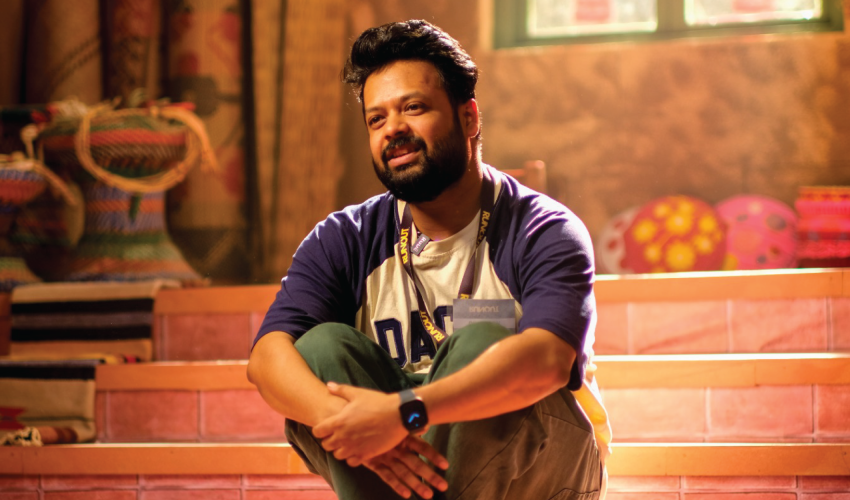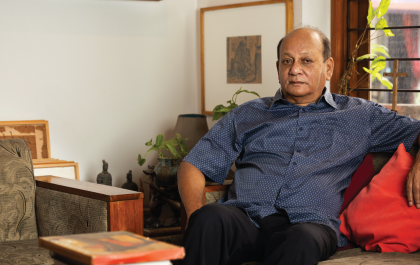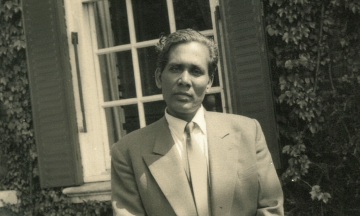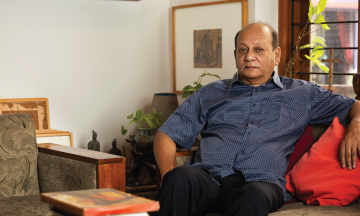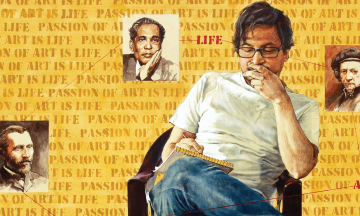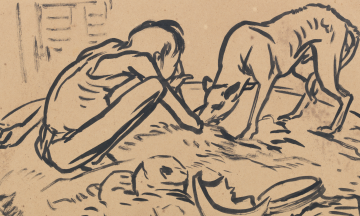Recently, Adnan Al Rajeev has ventured into international cinema, co-producing the Filipino short film Radikals with Tanveer Hossain. The film was nominated for its world premiere at the prestigious 77th Cannes Film Festival in 2024
By MWB Desk
However, this is not all the talented director-turned-producer is known for. Beginning his journey in the film industry as an assistant director at the tender age of 17, under the mentorship of acclaimed director Mostofa Sarwar Farooki, Adnan Al Rajeev quickly made a mark with his unique directorial style.
His works often explore complex social themes through engaging narratives, earning him both critical acclaim and popular appeal. Notable among his creations are television dramas like All Time Dourer Upor (2013) and Bikal Belar Pakhi (2017), which have resonated with audiences for their heartfelt story-telling and relatable characters.
Beyond the small screen, Adnan Al Rajeev has also made noteworthy strides in advertising, directing over a hundred television commercials for major brands. In a candid conversation with MWB, the promising director and producer opens up about the new creative avenues he’s excited to explore.
How and why did you get into visual media?
It was sort of a cinematic story. I was studying in Darjeeling and then one day, my father disappeared. I had no money to call back and contact my family – as you know when we are students and living in a hostel it is very difficult to save pocket money and make good use of it. Then I found out my father was kidnapped. When I came back to my family, I figured out that we didn’t have the same financial stability as before. I was very angry and disappointed in my father. I blamed him because he couldn’t do anything about the entire situation. I thought I would complete my studies in Darjeeling, come back, and do something that would suit me. However, after this incident, my life took a U-turn and I felt directionless.
I was waiting for my A-level results and didn’t know what to do. My elder sister suggested that I should do something. She took me to Mostofa Sarwar Farooki. Before meeting him, although I loved watching films, I had no idea about visual media at all. He was very kind. Back then, a telefilm or drama typically required two to three assistant directors (AD). But Farooki bhai had seven ADs. They were in shooting in a duplex house in Mohakhali DOHS for a serial named 69. And he asked if I wanted to join him. Surprising myself, I said yes. This is how my journey into visual media started. So, I started my career as an AD and I was only 17 back then. I would say I got into visual media to earn money but gradually, I fell in love with the overall industry.
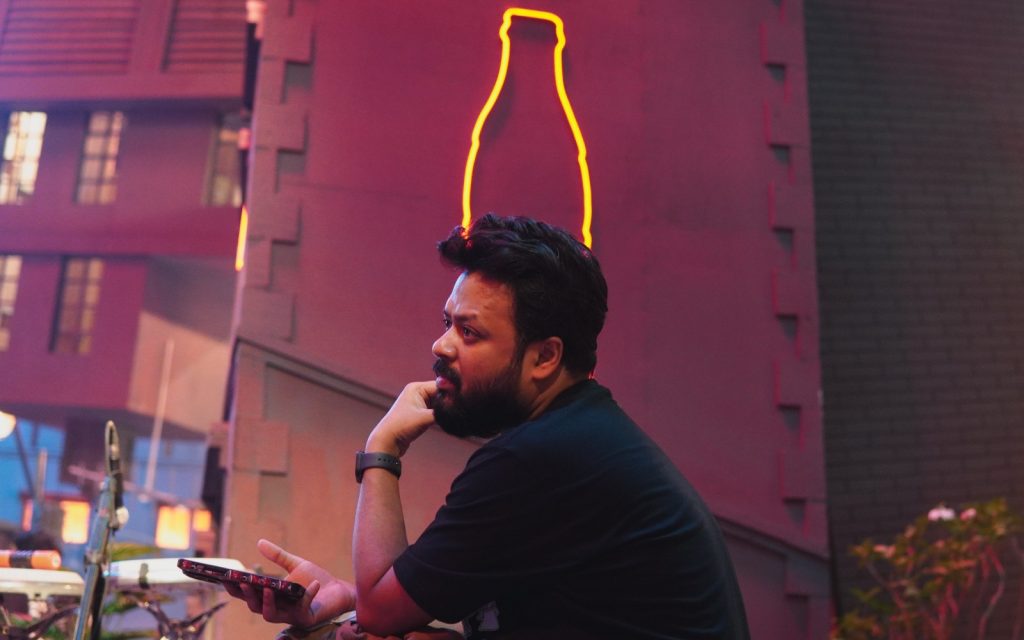
Who are some of your biggest influences?
People inspire me, more than filmmakers. I think I have learnt a lot by observing people. I don’t think it is about influences. I learn from everyone – it can be filmmakers, musicians, or just people living their daily lives. I haven’t been influenced by a specific someone but it is more about the stories of people.
What was some of the best advice you’ve received?
Don’t expect. When I met Mostofa Sarwar Farooki he advised me not to have expectations from life. When you expect you have a chance of falling out because you never know whether you will be able to fulfil that expectation or not. That inspired me a lot and I think I still believe in this philosophy – I don’t expect much from life.
I believe in doing things. If I feel from my heart that I want to do something, I do it. There have been instances when I produced a work and it didn’t meet my expectation – so, the idea pokes me subconsciously that it’s not about the expectation but the work itself.
How is your creative process different from when you’re planning a commercial shoot, like an advertisement as opposed to when you’re working on a drama feature?
Drama features always take a lot of time and patience. In contrast, you have to come up with a game plan in a short period of time when it comes to commercial shoots. For me, longer narratives are more like a meditation. You have to solely focus on a particular subject when it comes to longer narratives. So, this meditation is different from commercial shoot. Both have some similarities – but one has a longer portion, another shorter.
When it comes to fiction or longer narratives, I feel that it’s more about me and what I want to do. However, in commercial shoots, other stakeholders are involved such as the brand, agency, and of course, myself.
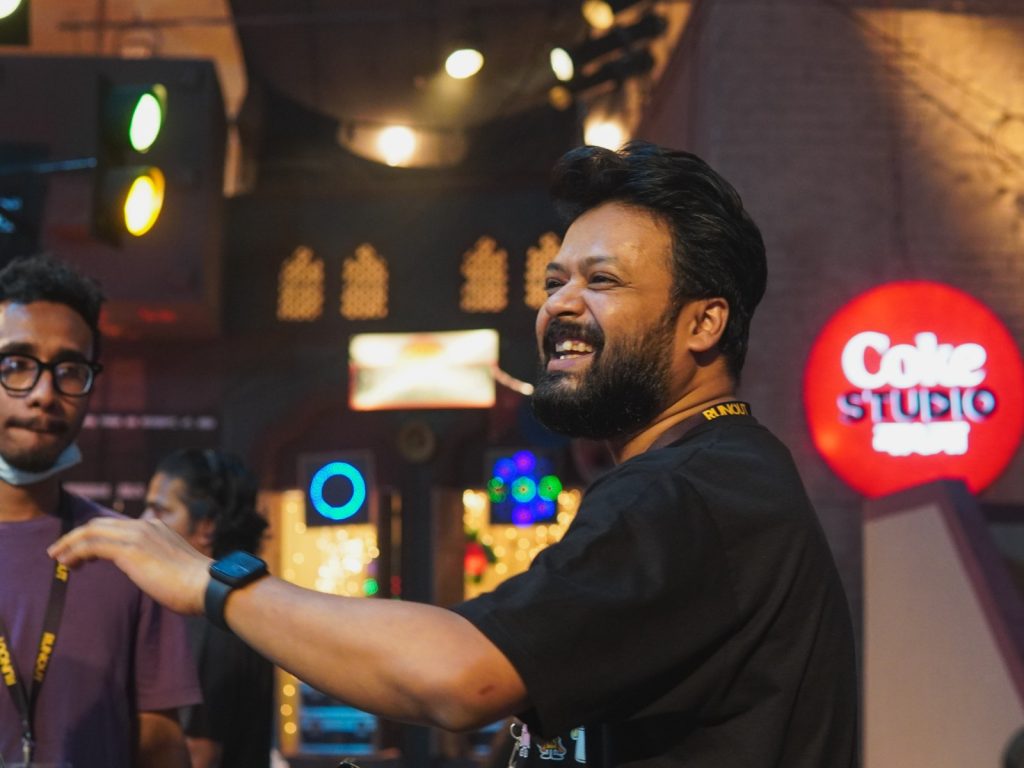
Do you ever revisit your old work and wish you could have done something differently?
I don’t revisit but I feel that there could have been scopes for improvement. In a project, I feel that whatever worked previously, perhaps a different thing could have worked better. Then again, I believe that you are always learning – the more you work the more you do better. For example, recently, when I went to Cannes and saw diverse movies, I felt that I had made something similar to this one but the process was different.
Congratulations on the premiere of Radikals at Cannes! As a producer, what are the things you look for in a story before deciding to take it on?
It’s not the person, not the film or idea, but what attracts me most is the thought of the director. If I am working as a producer, I am more interested in the take of the director on the film. When I was choosing the films, Tanveer Hossain, the co-producer of Radikals, told me about the director. So, I was interested in knowing the thought process of the director. Then I saw his works and found him to be a very interesting voice. I was searching for someone, who tells stories in a different pattern than I do and I felt that he was able to do that.
Who is someone you’d like to collaborate with in the foreseeable future?
As a director, I don’t think I want to collaborate with many people in the foreseeable future because I find directing to be a very lonely process. But as a producer, I want to collaborate with a lot of master filmmakers, who are doing well in the international market.
Nevertheless, I like directing more than producing. Producing just came along the way. When I was in advertising, I worked with a lot of young advertising filmmakers – who are now doing very well – and later, I got suggestions from people to work as a producer and curate films. And this is how I got into film production.
What’s next for Adnan Al Rajeev?
After visiting Cannes, I met many important people, who made me feel that I should revisit my thoughts and ideas. I have been making films for the Bangladeshi market for a long time, and now, I want to explore different markets and see how people perceive my work
MWB Desk
- MWB Desk
- MWB Desk
- MWB Desk
- MWB Desk
- MWB Desk
- MWB Desk
- MWB Desk
- MWB Desk
- MWB Desk




